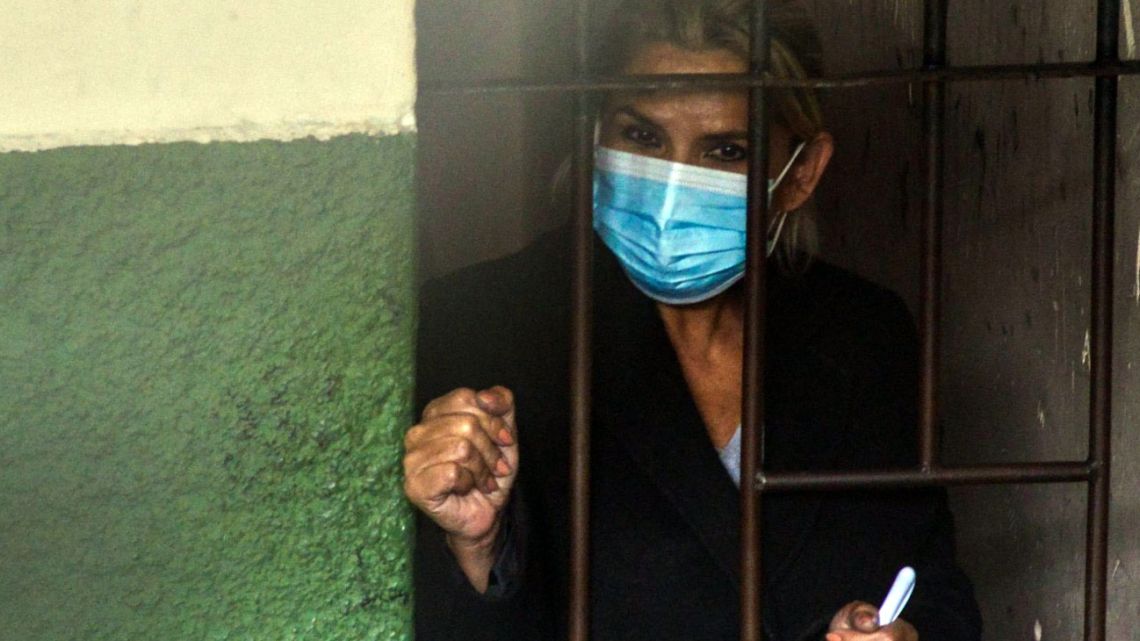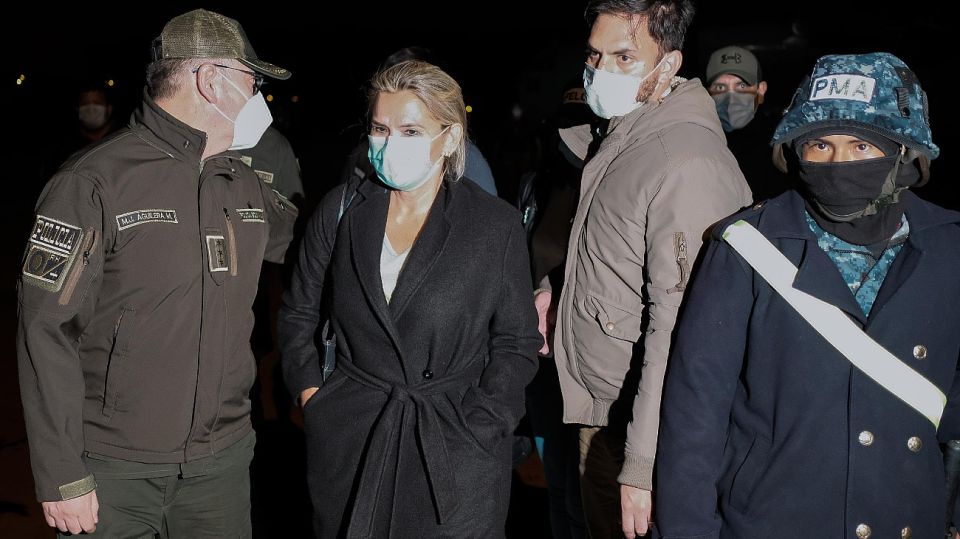
[ad_1]
The former de facto Bolivian president, Jeanine Áñez, spent her first night behind bars while awaiting questioning by the Attorney General’s office after her arrest for her participation in the coup against former President Evo Morales in 2019.
The main opposition parties, which deny that there was a coup in November 2019, condemned the arrest and demanded that Áñez be tried by parliament and not by ordinary courts. The Minister of Justice, for his part, rejected Áñez’s accusations of “political persecution”, said the process is in accordance with the law and that the former president and former senator is entitled to a trial in an ordinary court. UN, US and European Union (EU) called for due process guarantees and transparency is given to all legal proceedings.
Áñez assumed the presidency in November 2019, when Morales left amid strong social upheaval after opponents denounced election fraud in which the left leader called for re-election. Allegations of fraud sparked street protests and police riots, and amid unrest, the Armed Forces made the “suggestion” to Morales to resign. Morales, went into exile in Mexico, moved a month later to Argentina as a refugee and returned to his country in November 2020, after the presidential election won by Luis Arce, Match Movement towards Socialism (MAS), his former Minister of the Economy.
Áñez, was arrested yesterday at dawn in Trinidad, 600 kilometers from La Paz. His former Ministers of Justice, Álvaro Coimbra, and of Energy, Rodrigo Guzmán, were also arrested and all were flown to La Paz, for questioning by the prosecution. The charge is for “sedition, terrorism and conspiracy”.

Áñez is being held in cells at a police barracks and transferred for a few hours to the prosecutor’s office, but she accepted the right to remain silent and was sent back to the unit in uniform. The prosecutor’s office intends to collect her statements in the coming hours and decide under what legal conditions to refer her to a judge, for the opening of the judicial proceedings.
The leaders called tomorrow demonstrations against the arrests, described as “political persecution”, reported the AFP news agency. Áñez’s name appears in a complaint that former MAS MP Lidia Patty filed last December against Santa Cruz region civic leader Luis Fernando Camacho, who was elected governor. The trial includes five former ministers from Áñez, police and military chiefs and civilians. Justice Minister Iván Lima rejected opposition complaints that there was political management of the prosecution and said he was acting from the right. He explained that Áñez is not entitled to a judgment of responsibilities or privilege, due to his condition as a former governor, but to an ordinary process for his actions as a senator, before having assumed the first magistracy.
A privilege trial means that the Attorney General’s office asks Parliament to authorize the trial and then develop the process in the Supreme Court of Justice. Áñez’s arrest prompted Josep Borrell of the European Union (EU) to say on Twitter that “the charges for the events of 2019 must be resolved within the framework of transparent justice and without political pressure”. Stéphane Dujarric, spokesperson for UN Secretary General António Guterres, called for maintaining the guarantees of due process and full transparency in all legal procedures. “
The Acting Under-Secretary for Western Hemisphere of the United States Department of State, Julie Chung, asked yesterday on Twitter that Bolivia defends all civil rights and due process guarantees of the American Convention on Human Rights and Principles of the Inter-American Democratic Charter.
TE / DT / HB
You may also like
[ad_2]
Source link
 Naaju Breaking News, Live Updates, Latest Headlines, Viral News, Top Stories, Trending Topics, Videos
Naaju Breaking News, Live Updates, Latest Headlines, Viral News, Top Stories, Trending Topics, Videos